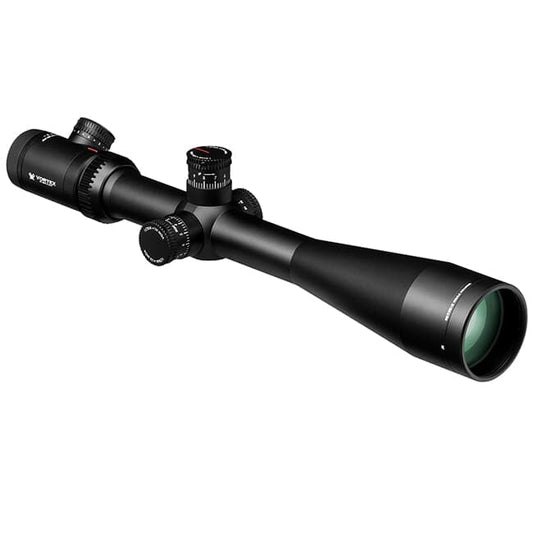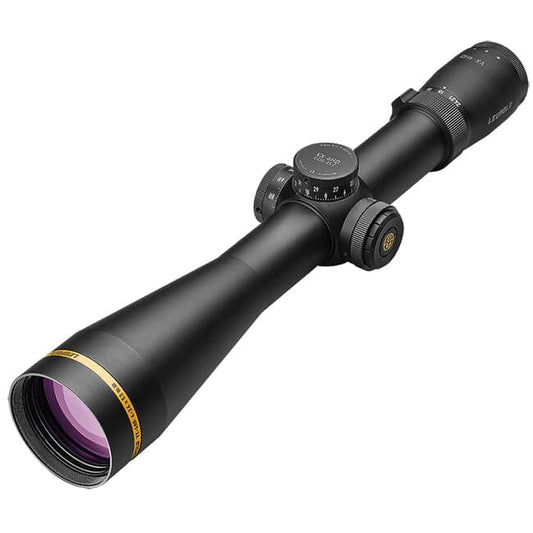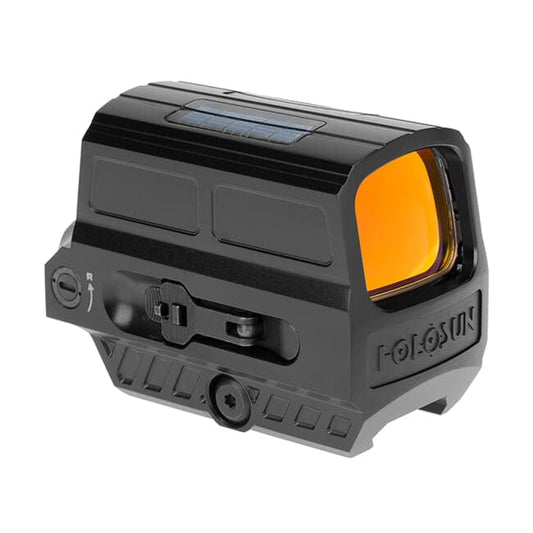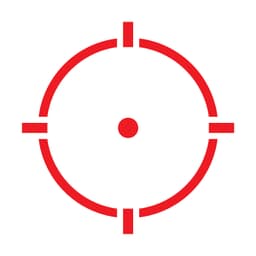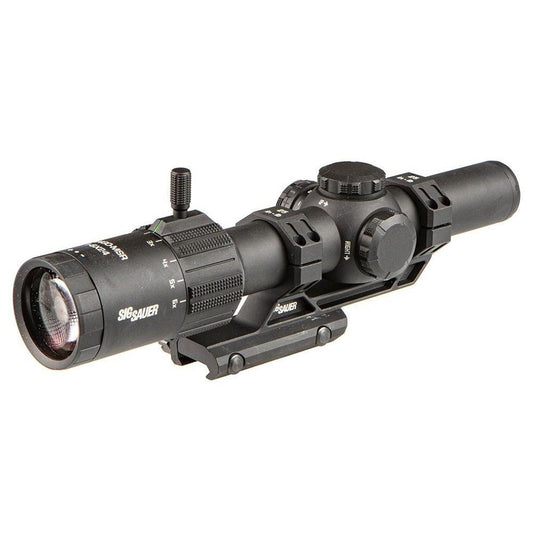

Sig Sauer Tango-MSR LPVO Rifle Scope 1-6x24 30mm FFP Illum MSR BDC6 Reticle SOTM61002 provides a reliable optical solution for precision shooting. Its 6x optical system delivers exceptional light transmission and clarity, ensuring performance in various lighting conditions. Quick adjustments are facilitated by the integrated thread-in throw lever, allowing for rapid target acquisition and versatility in close and long-range scenarios.
This FFP rifle scope is built to endure harsh environments, featuring waterproof, shockproof, and fog-proof construction. The illuminated MSR BDC-6 reticle offers 11 brightness settings for optimal target visibility, regardless of conditions. Included lay flat flip-back scope caps protect the lenses when not in use, and the ALPHA-MSR one-piece aluminum cantilever mount ensures a secure attachment to your firearm.
Features:
- SUPERIOR LIGHT TRANSMISSION for clear visibility in low-light conditions.
- HIGH PERFORMANCE 6X OPTICAL SYSTEM ensures versatility from close to long-range shooting.
- INTEGRATED THROW LEVER allows quick magnification adjustments on the fly.
- ILLUMINATED BDC-6 RETICLE enhances target acquisition with 11 brightness settings.
- WATERPROOF & FOG-PROOF construction guarantees dependable performance in all weather.
- SHOCKPROOF DESIGN ensures durability and reliability in rugged environments.
- LAY FLAT FLIP-BACK CAPS protect your lenses when not in action.
- ALPHA-MSR MOUNT INCLUDED for easy and secure attachment to your firearm.
Technical Specifications Table
| Specifications | Details |
|---|---|
| Magnification | 1-6x |
| Lens Diameter | 24mm |
| Weight | 1.2 lbs |
| Dimensions | 10.5 x 2.5 x 2 inches |
| Material | Aluminum |
What’s in the Box?
- Sig Sauer Tango-MSR LPVO Rifle Scope
- ALPHA-MSR 1 piece aluminum cantilever mount
- Lens covers
- Flip-back scope caps
Customer Reviews
"The clarity and brightness of this scope are unmatched! Perfect for my long-range sessions." - Jake M.
"Absolutely love the throw lever; it makes adjustments so easy!" - Sarah T.
"Built like a tank and performs flawlessly in all conditions." - Mike R.
FAQ
Q: How does the Tango-MSR compare to other LPVO scopes?
A: The Tango-MSR offers superior light transmission and an illuminated reticle, setting it apart for versatility across various lighting conditions. Its rugged build ensures reliability where others may falter.
Q: Can I use this scope in low-light conditions?
A: Yes, the illuminated reticle and high-quality optics provide excellent visibility, making it ideal for early morning or late evening hunts.
Q: Is the scope easy to mount?
A: Absolutely! The included ALPHA-MSR mount simplifies installation on your rifle, ensuring a secure fit without hassle.
Similar Models
Looking for more options? Explore our extensive Sig Sauer collection, including the Sig Sauer Tango-MSR 1-8x24 for even greater versatility and the Sig Sauer Tango-MSR 1-4x24 for a lightweight alternative. Discover your perfect match today!
You May Also Like
Here’s some of our most similar products people are buying. Click to discover trending style.



